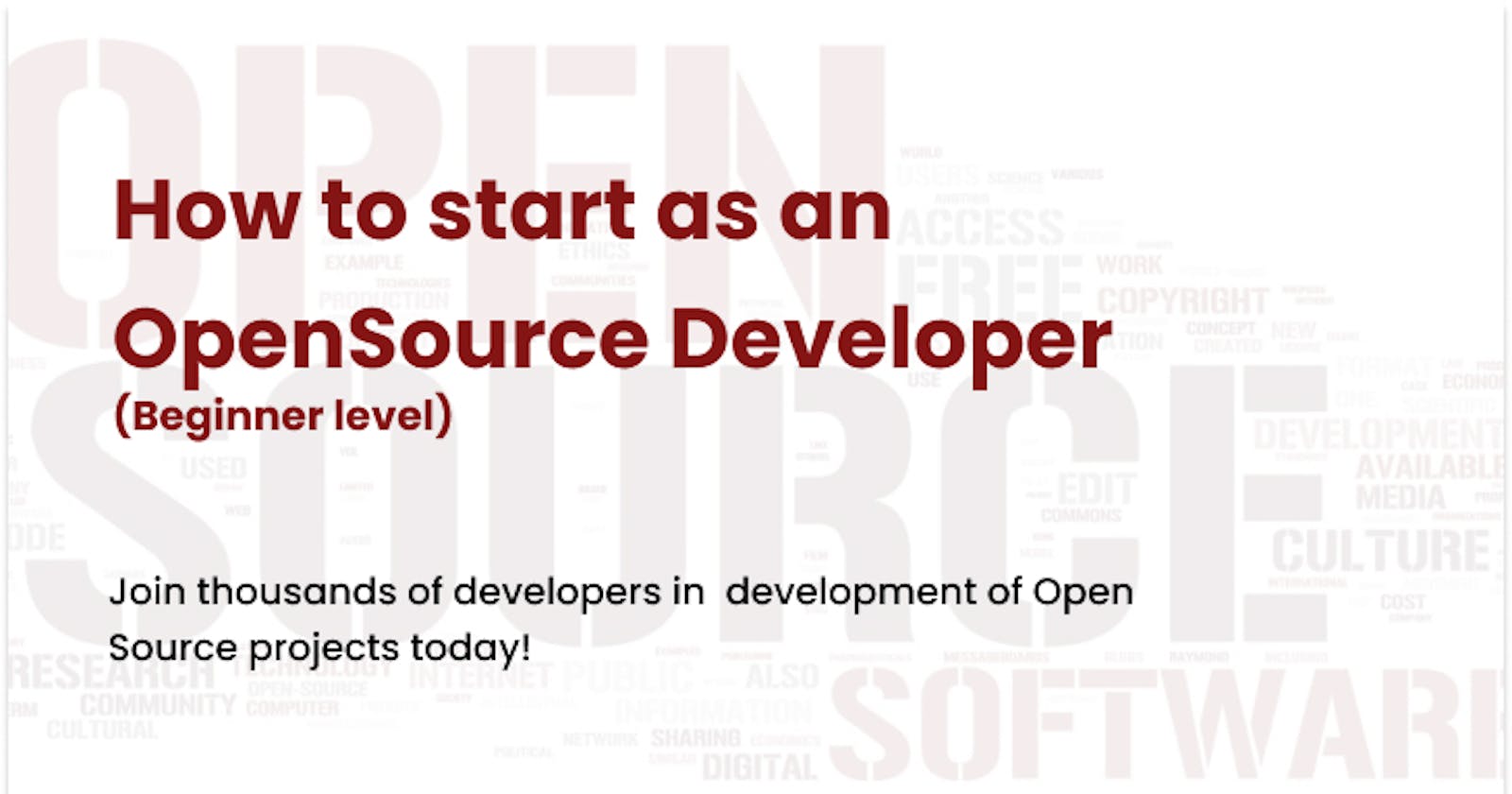What's an open source project ?
The tech world is moving according to the economic shift. There’s no company or startup which is ready to risk a lot of funds for the software project while there’s an alternative for that. What a company needs is to get a service up and running regardless if the software was built from scratch or as an open source project.
At an individual level, open source saves time and money too. By the way, what reward do you get after building your project from scratch ? Why build something which already exists and you can get it for free ? Would love to hear your thoughts :)
But what is an open source project ? It is a software project which is publicly free for anyone. That is, you can edit the source codes, change it to how you want. You can build your “big idea project” just on top of open source software. You can also release your sweet project to the community as an open source by allowing other developers to manipulate your codes. Sounds caring, right ?
Jump into open source project as a beginner
Step into open source projects as a newbie might be a challenge at first, however getting the right foot to start with can solve overheads. There are things you should know before starting contributing or building your application on top of an open source project.
Here’s the list of things you should consider first:
Able to use Git and Github comfortably. You’ll always find these projects in version control (VC) like Github. To access them and alter the change, all need a knowledge of the git. You need to know how to:
- Clone a project from Github (or any other VC)
- Branching models (master, develop, feature)
- Push the project
- Raise and resolve issue
- Write good commit
- Tag and versioning the project You can learn the basics from Github documentation but I also wrote deeply about Git and branching models in my article titled “Contribute as a pro”.
2. Learn how to write a good “README”. A README in a Github serves as a brief documentation of a particular project. Writing a precise document about the project helps another developer to jump straight into the project and manipulate on whatever he wishes.
On another hand, learning how to document your own project will help you to easily read and follow along with the docs. of other projects. While writing, there are a number of online tools to heavylift the job. I normally use dillinger to write the README before shipping it into Github. It has some placeholders which you can just change to fit your headings and contents. It supports markdown language as that used in Github.
3. Learn how to write clean codes. By "clean codes" I mean the codes which are precise and easy to read. Don't just focus on the working codes, but the codes that another developer can read them and scale the project. Write the code while thinking about another person who'll come to read them. Here are the tips for writing clean codes:
- Master the domain language of a given project. That is, if the software is about Health, then the naming convention and your variables will all align to the health context.
- Clear naming convention. Be very clean in naming the variables, methods and classes. Don't let your code become unequivocal just for laziness reasons.
- Use comments only where required.
- Obey DRY principle. Only define once and just reuse it where needed. Don't Repeat Yourself !
- Well structured file tree. Your files should be in an organized manner. Don't just write the codes anywhere! Also, specify your main file (entry-point file). This will help another contributor to easily know where your software starts.
What's next ?
If you're comfortable with the tips above then it's a right time for you to try out doing something handy.
- Pick one open source project of your choice. I'll write on sample open source projects for beginner.
- Read the project codes and documentation
- Contribute. I will upload soon the article on how to contribute as a pro.
- Or build your software on top of it.
Thanks for reading this!
(It's my first article)
